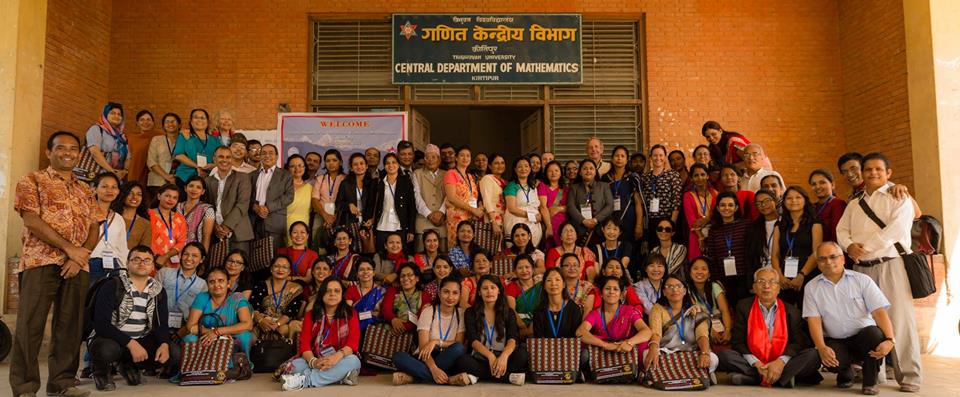The following article is about the AARMS-supported conference Symposium for South Asian Women in Mathematics. It was written by Sara Faridi (Dalhousie University) and is re-printed with permission from CMS Notes (Volume 50, No. 2, March-April 2018)
What unites us as mathematicians is our love of mathematics. It goes beyond our personal, national or cultural identities. Some of us are attracted to the grand open problems, some to the glorious past, some to the intriguing puzzles, and some to the art of sharing it with enthusiastic students. In a way, mathematics is a culture of its own within which we mathematicians live. Unlike so many others, we are paid to inhabit a world we love.
A typical mathematical event is multicultural, but one can easily be blind to that because the math culture takes over, and people are often focused on a narrow field. The excitement of sharing our interests shrouds our differences.
This can slightly change if you visit a math department in a different country and immerse yourself in that department’s culture. Each department does things a bit differently. Perhaps they have different lunch routines. However, there are many similarities: there are seminars, colloquia, students, exams and defenses, poster boards announcing upcoming conferences and interesting problems to think about. No matter how exotic the new land, the math department is an island offering the comforts of home. Just like Starbucks, you can trust it to be the same the world over!
At a recent meeting of Women in Mathematics in Nepal, I had a completely different experience. I had already been to a conference at Thribhuvan University in Kathmandu the previous year, and had enjoyed the conference, the people, and the country immensely. During that meeting, the local female mathematicians approached the female conference participants for help in professional development. The prospects for female Nepalese mathematicians, they said, were limited at best.
It seemed natural to want to help, so some colleagues and I decided to organize a conference in Kathmandu inviting women mathematicians from Southeast Asian countries (who are culturally similar to the Nepalese) to share their own experiences of mathematical life: obstacles they have had to overcome, motivation of students and outreach, where to look for opportunities, roads to success, and so on.
We spent the next year planning, fundraising and writing to people. Most places we applied to were happy to support the event financially, and we managed to reach out to a large body of women: many from Nepal and neighbouring countries, and several more from Europe, the US, Japan, Korea and Canada.
The event was a success, we met our goal. We even made it to National TV!
We talked about mathematics and being mathematicians, and once again, after much effort to get everyone together, we were in the familiar setting of a mathematics conference.
But this time things were different: the dominant culture was not that of mathematics, but that of the region, dictated by geography and by cultural norms. The women from the region shared their stories of what it took them to do mathematics. While for me, mathematics was a choice of many fields I made in high school, for them it was a change of destiny and a breaking of all sorts of cultural barriers. Many successful female mathematicians from this area were wives, daughters-in-law, and mothers first, and mathematicians in their very limited spare time. Some picked their life-partners with a view of who would most be able and willing to support their mathematical career. Many women typically completed each degree after completing a family phase (children going to school, children getting married). There were women well into their forties who were contemplating their next academic degree.
The experience was humbling, and the obstacles faced by our colleagues seemed insurmountable.
As we planned the banquet dinner, we thought we should share some motivational stories with these women, about the journeys of female mathematicians in the previous century and their hardships, to smoothen their rocky road.
The Nepalese women disagreed. What we perceived as a rocky road was normal life for them, and the fact that we were there looking for ways to make things better warranted a celebration. It was a party after all, and there ought to be a talent contest! So we put all things in perspective, and spent the evening singing and dancing and celebrating our common love of mathematics in their way, and according to the cultures of the region.

